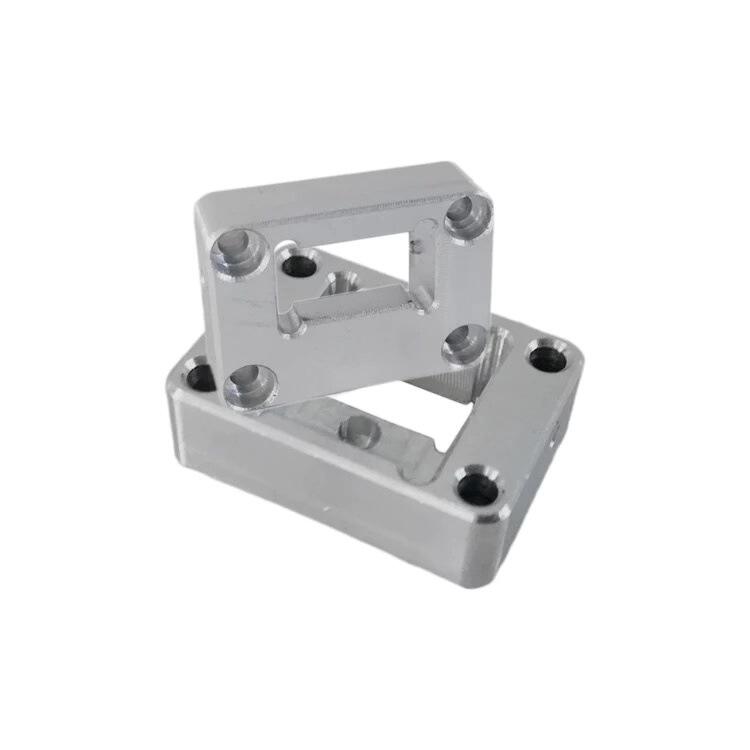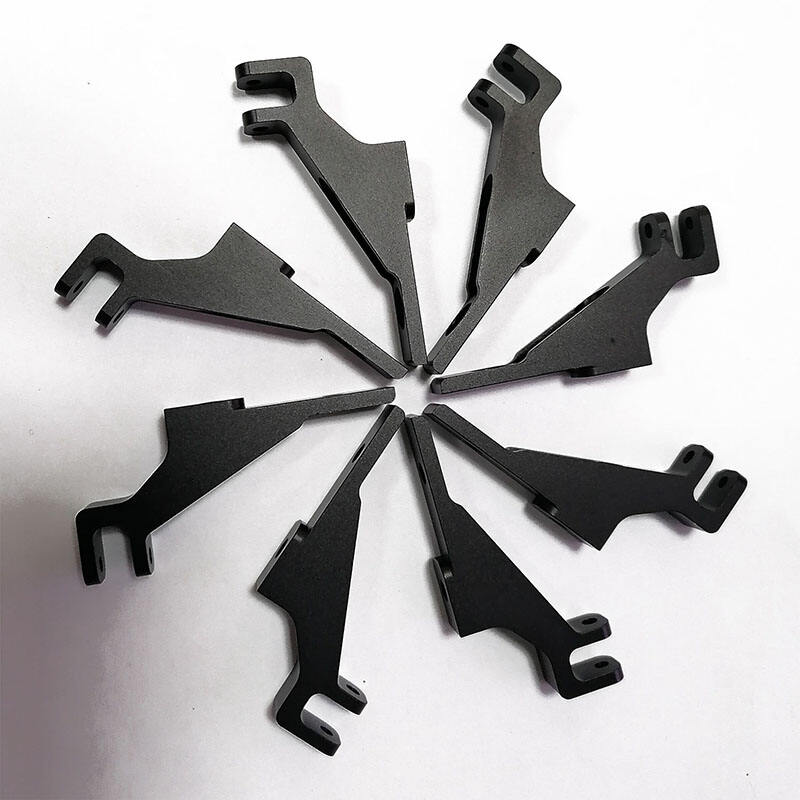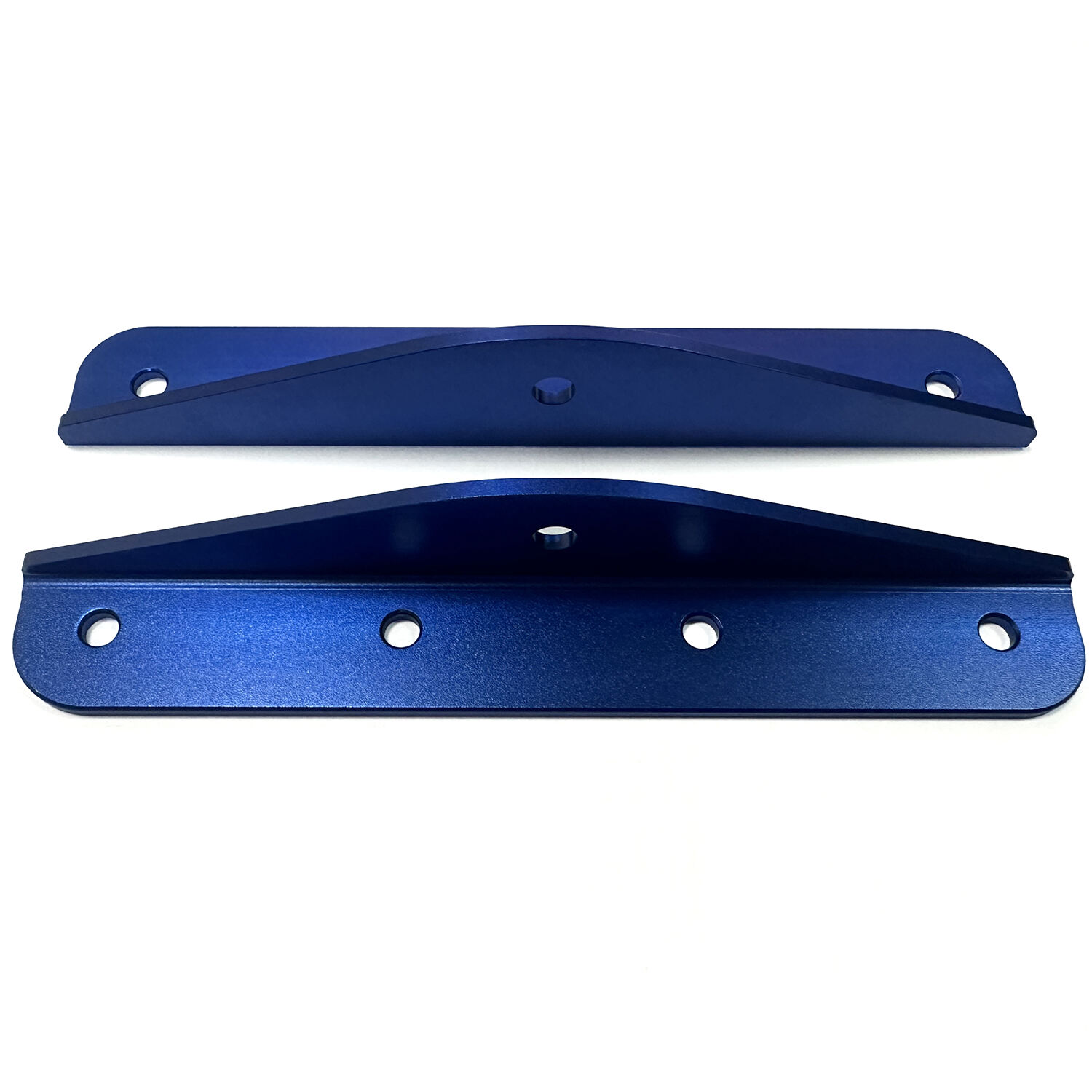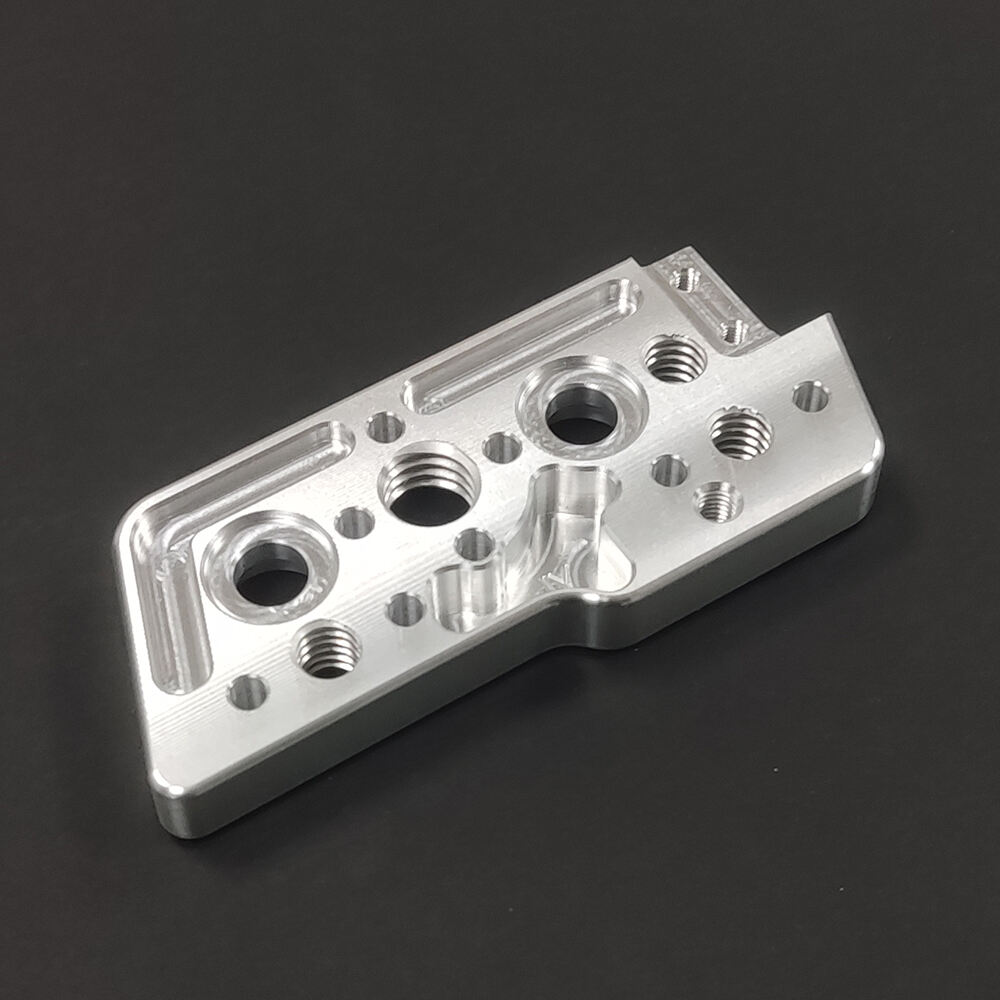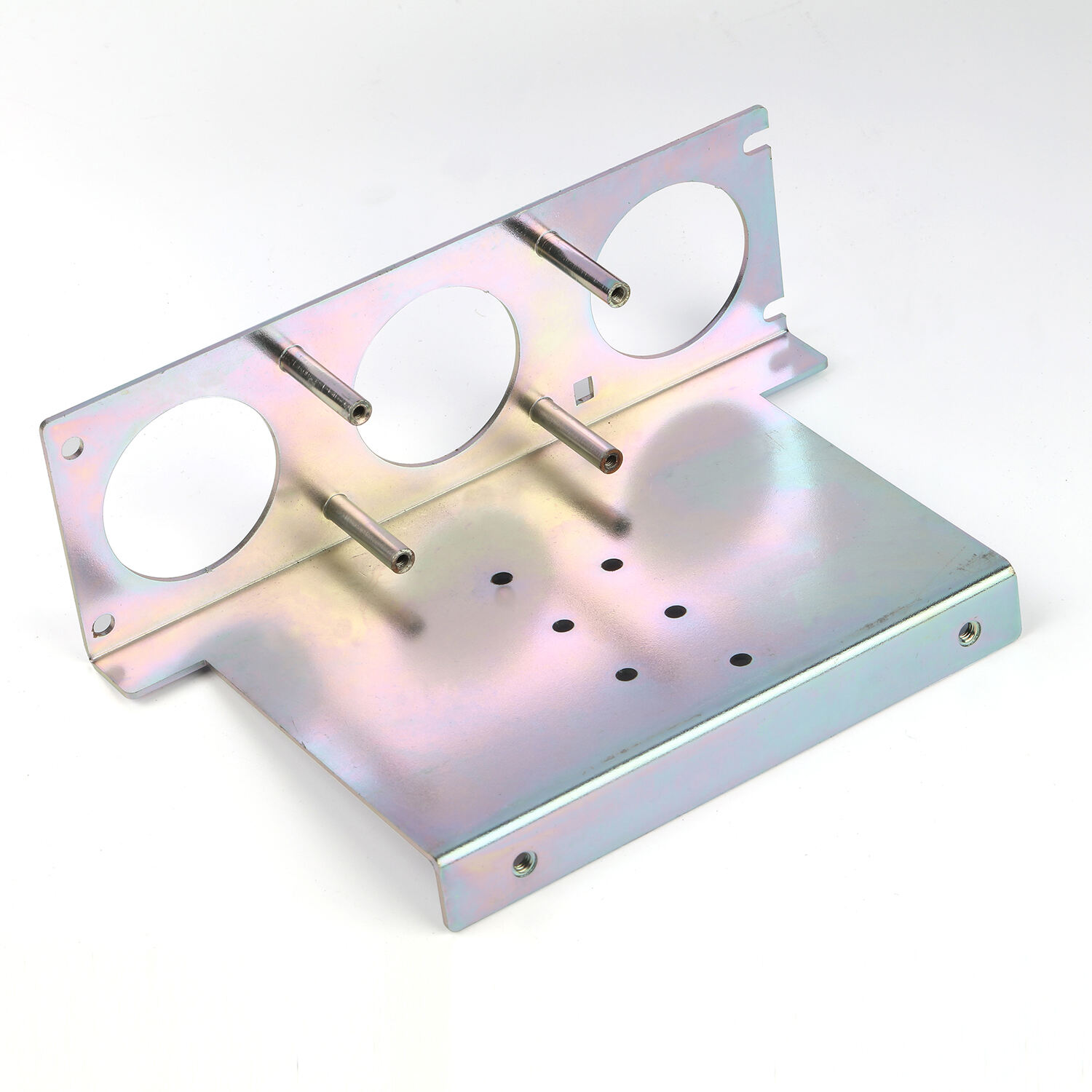The core position of CNC machining technology in modern manufacturing industry
Key Advantages of CNC Machining in Modern Manufacturing
Enhanced Automation for High-Volume Production
CNC machining streamlines production processes, significantly reducing manual labor and associated costs. Automation enables manufacturers to operate CNC machines around the clock, facilitating production in high-demand periods without sacrificing quality or efficiency. Industry reports highlight that CNC automation can increase output efficiency by up to 75%, offering unparalleled benefits for manufacturers aiming to meet tight deadlines and high-volume needs. This level of efficiency means quicker turnaround times and reduced labor costs, making CNC machining a smart investment for modern manufacturing businesses.
Precision Engineering for Complex Components
CNC machines excel in precision engineering, perfect for manufacturing complex components with extremely tight tolerances. By employing computer programming, CNC machining produces parts to exact specifications, minimizing error margins to as low as 0.005mm. This precision is crucial in industries like aerospace and automotive, where intricate components require meticulous attention to detail and flawless execution. Additionally, CNC machining supports the creation of complex geometries, which are essential for advanced engineering applications, thus proving indispensable in scenarios demanding high precision.
Consistency in Mass Production Workflows
CNC machining guarantees uniformity in mass production, ensuring each component is identical to the previous one, thereby minimizing waste and enhancing product quality. Automated settings in CNC machines lead to reduced variation, which is particularly significant for products adhering to specific standards and regulations. Consistency is not just about producing identical parts; it also involves producing superior quality products. Research indicates that maintaining consistent workflows through CNC machining can improve overall product quality by 20%, emphasizing the technology’s role in boosting manufacturing outcomes and reliability.
Advanced CNC Machining Services and Capabilities
Multi-Axis CNC Lathe Operations for Intricate Designs
Multi-axis CNC lathe operations enable the creation of complex shapes and designs, a capability that is increasingly demanded in bespoke manufacturing. These advanced operations allow multiple cutting actions simultaneously, reducing the need for manual reorientation of components and therefore increasing accuracy and minimizing cycle times. Experts suggest these lathes can cut production times by up to 50% in certain applications. This efficiency, combined with precise control over intricate designs, makes multi-axis CNC lathes indispensable for industries producing detailed components.
Sheet Metal Fabrication and Welding Integration
Integrating CNC machining with sheet metal fabrication significantly enhances the quality and precision of finished products. This amalgamation allows for not only precise cutting but also complex assembly requirements through seamless welding integration. Such integration offers a streamlined manufacturing process, where data indicates there is an overall increase in operational efficiency and a reduction in costs. This holistic approach is especially beneficial for fabricators producing large quantities of consistent and high-quality metal parts.
Custom Metal Alloy Machining (Stainless Steel, Titanium, Copper)
CNC technology facilitates the machining of various metals, ensuring a consolidated process while reducing the reliance on specialized machines. Custom machining of diverse alloys such as stainless steel, titanium, and copper meets the stringent material demands across various industries, including the medical and aerospace sectors. Reports show a 30% surge in demand for custom alloys, emphasizing the relevance of versatile CNC machining capabilities to efficiently handle these materials.
Material Versatility and Technical Expertise
Surface Treatment Options for Enhanced Durability
Advanced surface treatment options play a crucial role in boosting the durability and aesthetic appeal of machined metal parts. Techniques like anodizing or powder coating not only improve the longevity of components but also ensure they can withstand harsh conditions. For instance, proper surface treatments can significantly optimize performance characteristics, making them essential for parts exposed to challenging environments such as marine or industrial settings. According to industry studies, implementing these treatments can extend the lifespan of parts by up to 200%, highlighting their effectiveness in enhancing durability and reducing maintenance costs.
CAD/CAM Compatibility for Rapid Prototyping
The compatibility of CNC machines with CAD/CAM technology is a game-changer in rapid prototyping and product innovation. This integration allows manufacturers to swiftly transition from design concepts to tangible products, drastically reducing time-to-market. The versatility afforded by CAD/CAM technology enables designers to iterate rapidly on prototypes, fostering innovation by allowing for quick adjustments and refinements. Numerous companies have experienced shortened prototype development cycles, underscoring the crucial role of CAD/CAM integration in accelerating product development and maintaining competitive edges in fast-paced markets.
Quality Control in Metal Fabrication Processes
Quality control is an indispensable aspect of metal fabrication that ensures products meet stringent industry standards. Incorporating quality control measures within CNC machining processes enhances reliability and consistency in production. Automated inspection tools like real-time monitoring systems can significantly boost product reliability by swiftly identifying defects. Studies have shown that integrating strict quality control processes reduces defects by over 25%, thus enhancing customer satisfaction and ensuring compliance with industry standards. Such measures not only improve the final product's quality but also streamline production, making the process more efficient and cost-effective.
CNC Technology's Role in Industry 4.0 Adoption
IoT-Enabled CNC Machines for Smart Factories
The integration of the Internet of Things (IoT) within CNC machining is revolutionizing smart factories by enhancing device connectivity. When CNC machines incorporate IoT technology, real-time data collection and monitoring become achievable, providing comprehensive insights into machine performance and operational efficiency. This technological advancement allows manufacturers to make informed decisions, reducing downtime and optimizing maintenance schedules. According to market research, the implementation of IoT in manufacturing has been shown to increase productivity by as much as 30%, underscoring its significance in today's competitive industry landscape.
AI-Driven Optimization in CNC Programming
Artificial Intelligence (AI) is ushering in a new era of optimization in CNC programming, significantly influencing manufacturing processes. AI algorithms help refine CNC machining parameters, resulting in substantial cost savings and efficiency gains. By interpreting complex datasets, AI can recommend optimal machine settings, thus reducing the likelihood of human error and enhancing overall productivity. Research forecasts indicate that applying AI in manufacturing could yield a 20% increase in efficiency over the next decade. This projection demonstrates the transformative potential of AI-driven solutions in evolving the precision, scalability, and reliability of CNC machining, particularly in the context of Industry 4.0's advancement.
Recommended Products
Hot News
-
Advantages of CNC machining
2024-01-16
-
What is CNC machining technology?
2024-01-16
-
The development trend of CNC machining
2024-01-16

 EN
EN
 AR
AR
 CS
CS
 DA
DA
 NL
NL
 FI
FI
 FR
FR
 DE
DE
 EL
EL
 IT
IT
 JA
JA
 KO
KO
 NO
NO
 PL
PL
 PT
PT
 RU
RU
 ES
ES
 SV
SV
 TL
TL
 ID
ID
 VI
VI
 TH
TH
 MS
MS
